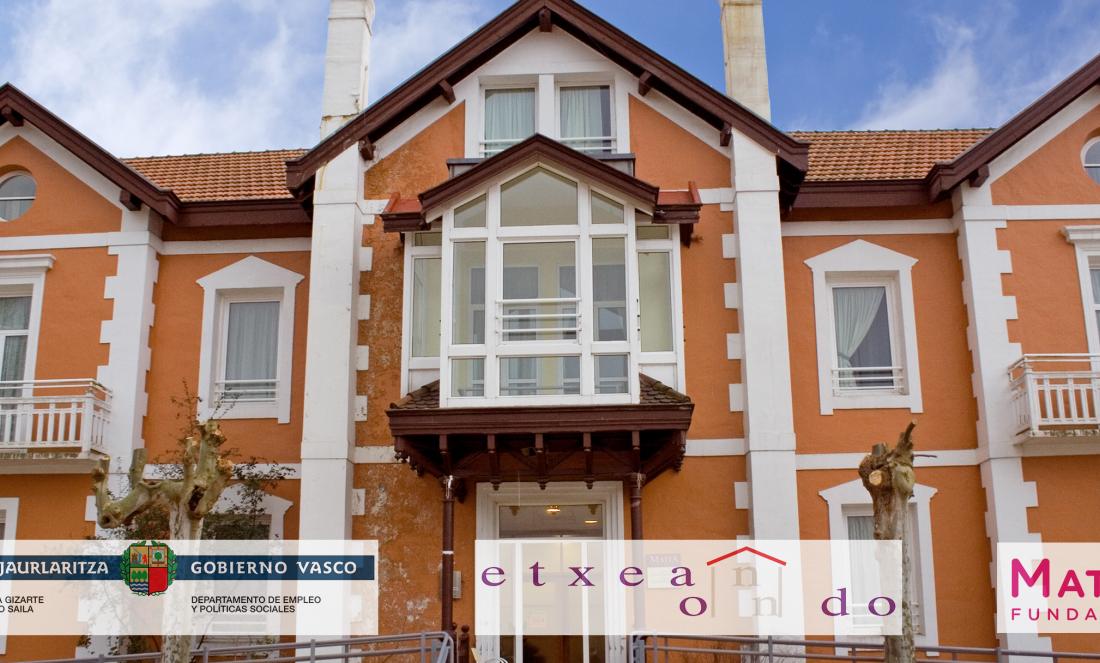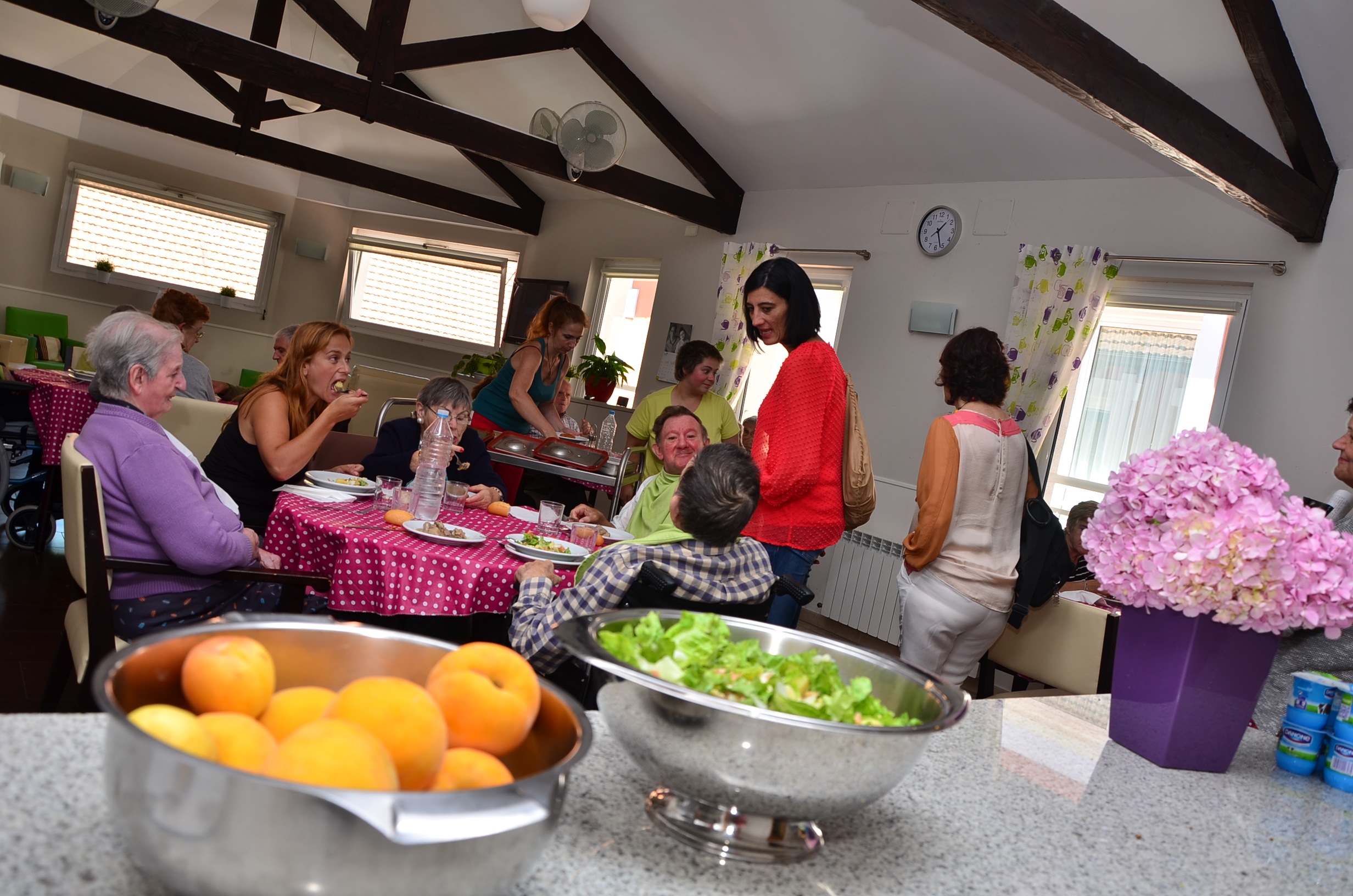
Etxean Ondo Residences - the Fraisoro experience
In April 2012, at the Fraisoro Gerontology Centre in Matia Fundazioa (Zizurkil, Gipuzkoa), we began our journey to develop the person-centred care model.
Changes were in sight. We had to face up to new advances in our care model; nothing more and nothing less than trying to adapt care practices to the residents' lifestyles, dignifying and giving value to their capabilities, their preferences and desires, their skills and hobbies... in short, supporting and promoting the personal life projects of these elderly people.
The previous work was necessarily intense, starting with a whole process of information to workers, residents and families and training to people who voluntarily chose to participate in the project in the new concepts and roles to be developed.
With the consensus of the team of assistants of the residence, we proceeded to the adaptation of the work schedules, the increase of the ratio (more staff), and, with it, the necessary consensus to minimize the rotation of staff, to give stability and continuity to the team of the cohabitation unit and to designate the reference caregiver, who would be the support of the resident in the day to day.
This is how we started the project in a psycho-geriatric unit, a small module of fourteen people, starting by modifying the previous minimalist environments into pleasant txokos, comfortable, homely and functional spaces that would provide the possibility of turning the residence into the continuation of a home to "live like home".

Thirteen months have passed since the first steps were taken and, according to the data and results of the monitoring controls of the indicators of quality of life, user and family satisfaction, skills and worker satisfaction, the results as of March 2013 are more than satisfactory.
In line with these quantitative results and the qualitative results provided by the observation of day-to-day life in the convivial unit, we can conclude that the effort is well worth it, as the benefits to the parties involved at all levels are unquestionable.
The people who live in the unit are observed to be much more spirited and happy, participating in the activities of daily life, masters of their time, with a high level of autonomy despite their cognitive deficits. Personalised activities are encouraged according to preferences and hobbies, respecting the roles of each person within the group.
For families, this has also meant a change, mainly of greater involvement and participation in care. The figure of the reference caregiver has developed a closer and greater relationship and better communication, which generates more confidence and tranquillity in the families.
For the workers, the change has been very important. They knew that it was not going to be easy to carry out this project: because all change generates resistance; because this care project also requires agreement, sharing and assuming initiatives from the residents; because it demands involvement, recycling of technical training, improvement of personal skills and teamwork... and they continue to change, learn and improve.
I cannot resist transcribing the opinion of one of these carers:
"This project has made me grow as a professional and has discovered things about me that I didn't know. It is very gratifying to know that my work is worthwhile, and I, to this day, know that mine is worthwhile...".
Indeed, they have strengthened their professional self-esteem and continue to be motivated and enthusiastic in their day-to-day work. Within the team they maintain a relationship in which ideas and initiatives, mistakes and progress are shared and discussed, in which relationships are open and in which conflicts that may arise are managed.
This year's experience, the current results and those expected confirm the wisdom of the decision to move forward with this model of care which, from the principles of ethics, promotes the defence of the rights that, as citizens, also correspond to the residents who live with us.
(Related articles: Etxean Ondo Residences)

Add new comment